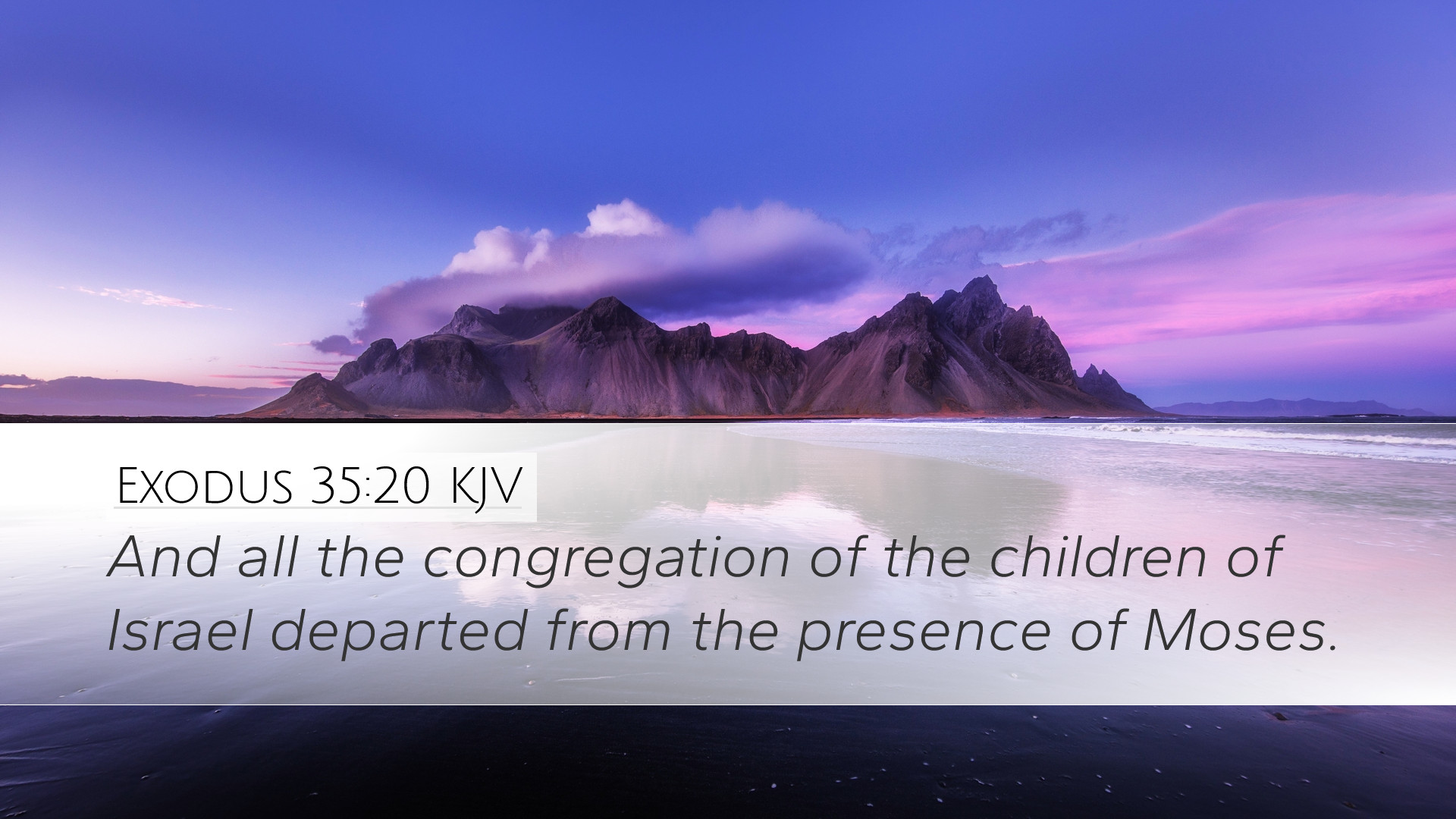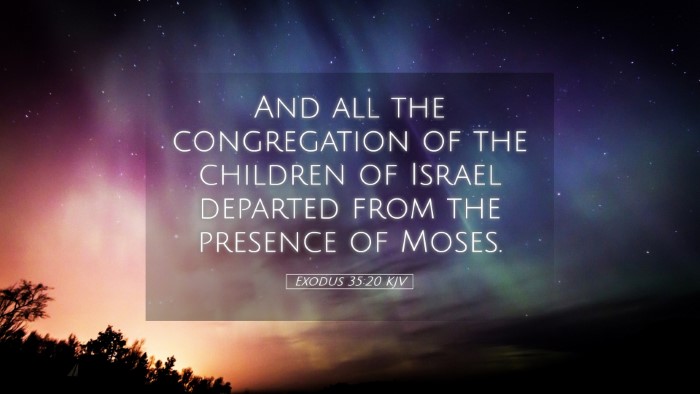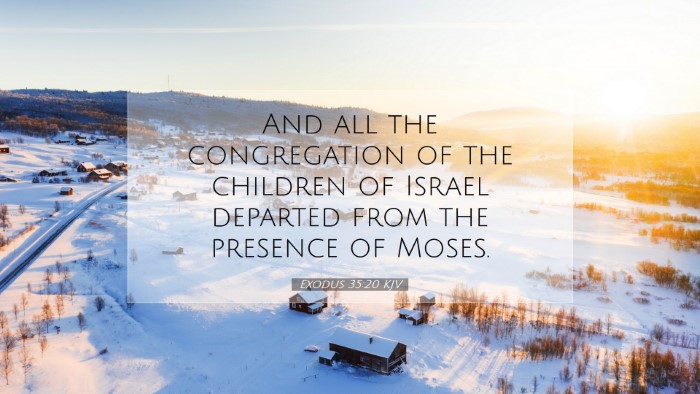Exodus 35:20 - Summary and Commentary
Verse Context: Exodus 35:20 states, "And all the congregation of the children of Israel departed from the presence of Moses." This passage occurs within the broader narrative where the Israelites are called to contribute to the construction of the Tabernacle. The setting is pivotal as it reflects the collective unity and responsibility of the community under Moses' leadership.
General Overview
This verse captures a moment of transition and action. Following Moses’ instructions concerning the offerings for the Tabernacle, the verse marks the moment when the congregation, after receiving directives, departs to fulfill their roles in God’s plan.
Theological Implications
Exodus 35:20 reveals important theological themes essential for understanding the nature of God’s people:
- Community Responsibility: The mention of "all the congregation" emphasizes that each individual holds a vital part in communal worship and service.
- Divine Calling: The departure signifies responsiveness to God’s call, showing the importance of obedience and action following divine instruction.
- Leadership of Moses: Moses serves as a mediator between God and Israel, representing the importance of divinely appointed leadership in guiding the faith community.
Insights from Commentators
Matthew Henry's Commentary
Matthew Henry outlines that the action of the congregation departing indicates their willingness to serve God. He signifies that true service to God often begins when the community is willing to act upon divine commands. Henry notes that the unity of the congregation is essential as they come together to fulfill God’s work. He emphasizes that the departure signifies a readiness to carry out the task of constructing the Tabernacle, symbolizing individual and collective faith in action.
Albert Barnes' Notes on the Bible
Albert Barnes highlights the significance of following Moses’ commands. He elaborates that the willingness of the congregation reflects a disposition to obey and honor God. Barnes stresses the importance of collective participation in the worship and building process, suggesting that contributions are not merely financial or material but encompass a heart attitude towards God. He remarks that this verse illustrates a critical moment of mobilization for service within the community of faith.
Adam Clarke's Commentary
Adam Clarke emphasizes the collective nature of Israel's response under Moses. He discusses the theological importance of “departing” which suggests not only a physical separation but also a spiritual readiness to engage in God's work. Clarke notes that the Israelites' actions demonstrate crucial elements of faith, obedience, and community spirit, invoking a sense of purpose as they prepare to fulfill God's commandments. Furthermore, he ties the act of departure to the larger narrative of the covenant relationship between God and Israel, exemplifying their role as a holy nation.
Application for Modern Readers
For pastors, theologians, and Bible scholars today, Exodus 35:20 serves as a poignant reminder of the qualities necessary for effective ministry:
- Unity in Purpose: The church must strive for a cohesive approach in fulfilling the Great Commission.
- Responsive Leadership: Leaders must challenge congregations to respond actively to God’s grace and guidance.
- Collective Worship: All members of the church should understand their individual contributions to communal worship and service.
Conclusion
In essence, Exodus 35:20 encapsulates the unity, action, and response of the people of Israel to God’s call through Moses. By contemplating the insights provided by noted commentators such as Henry, Barnes, and Clarke, readers are encouraged to recognize the ongoing relevance of these themes in the contemporary church. The commitment to collective worship and obedience highlights the communal aspects of faith that are necessary for the advancement of God's kingdom.


